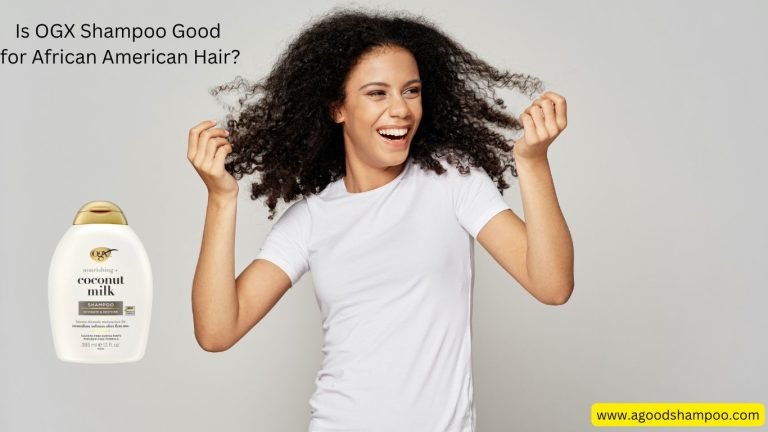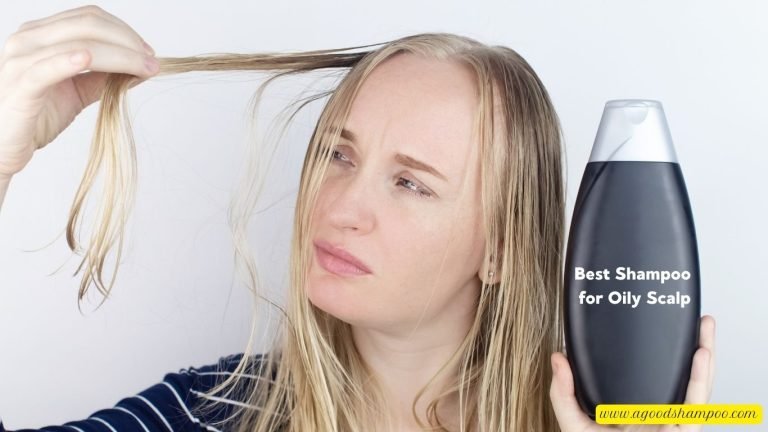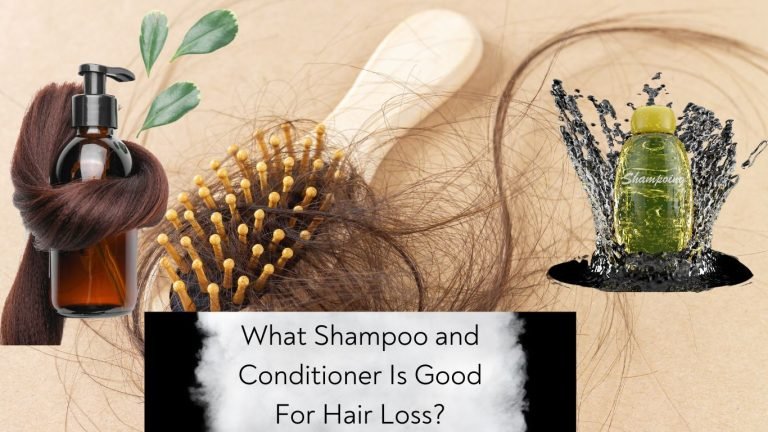Is Denorex Shampoo Good? Benefits, Side Effects & Alternatives
 You’ve probably seen Denorex sitting quietly on the pharmacy shelf, that bold medicated label, promising to crush dandruff and calm the scalp. It’s not the fancy salon bottle with gold letters or a floral scent, but something about it says, I mean business. And that’s exactly why people either swear by it… or swear they’ll never use it again.
You’ve probably seen Denorex sitting quietly on the pharmacy shelf, that bold medicated label, promising to crush dandruff and calm the scalp. It’s not the fancy salon bottle with gold letters or a floral scent, but something about it says, I mean business. And that’s exactly why people either swear by it… or swear they’ll never use it again.
So, is Denorex shampoo good? Or is it one of those old-school relics we keep around just for nostalgia? Let’s dig deep, and by deep, I mean straight into your scalp health, ingredients, and real results.
Why Denorex Even Exists
Denorex has been around for decades. Back when hair care aisles weren’t overflowing with 50 kinds of “hydrating mint and charcoal detox shampoos,” Denorex stood out for one thing, coal tar. Yep. The dark, sticky byproduct of coal processing that somehow helps calm inflammation, slow down skin cell growth, and kick dandruff’s stubborn butt.
It’s not glamorous. But it works.
Coal tar is an FDA-approved active ingredient for treating seborrheic dermatitis, psoriasis, and chronic dandruff. It slows the rate at which scalp skin cells die and flake off. Basically, it tells your scalp to chill out.
And that’s what made Denorex a staple. It wasn’t designed for “hair that smells like a summer breeze.” It was designed for people with angry, itchy, flaky scalps who needed real relief.
What’s Inside Denorex Shampoo
If you flip that bottle, you’ll find something quite different from your average drugstore shampoo.
Main active ingredients:
Coal Tar (1–5%) – The hero here. Helps reduce scaling, itching, and redness by slowing down overactive skin cells.
Menthol – Gives that cooling sensation, soothing irritation and adding a clean, tingly feeling.
Zinc Pyrithione (in some versions) – Known for fighting Malassezia, the yeast responsible for dandruff.
Other supporting ingredients:
Water, cocamidopropyl betaine (gentle cleanser), fragrance, sodium chloride, and conditioning agents to make sure your hair doesn’t feel like straw afterward.
Now, some people ask, has Denorex shampoo been discontinued?
No, not exactly. Certain formulas have been pulled or reformulated, depending on regional regulations about coal tar concentrations. But Denorex is still available online and in some stores under different labeling (sometimes branded as “Therapeutic Shampoo + Conditioner”).
How Denorex Actually Works on the Scalp
Let’s talk science, simply.
Your scalp is covered in oil glands. When they go wild, or when yeast builds up, you get flakes, itching, redness, the classic dandruff chaos. Coal tar steps in like a calm teacher in a noisy classroom. It slows down cell growth and reduces inflammation. Menthol cools things down, giving temporary relief.
When you massage Denorex into your scalp and leave it for a few minutes, it goes to work beneath the surface, not just washing off flakes but modifying how your scalp behaves.
It’s not an overnight miracle. Usually, you’ll see improvement after a week or two of consistent use, especially if dandruff or dermatitis has been bothering you for months.
Ingredient Breakdown
| Ingredient | Function | Research Says |
|---|---|---|
| Coal Tar | Reduces itching, scaling, and redness | Proven effective in treating psoriasis and dandruff since early 1900s (FDA-approved) |
| Menthol | Soothes and cools the scalp | Found to reduce irritation and burning sensation on sensitive scalps |
| Zinc Pyrithione | Antifungal and antibacterial | Fights Malassezia yeast, common in dandruff |
| Cocamidopropyl Betaine | Gentle cleansing surfactant | Keeps scalp clean without over-stripping oils |
My Honest Experience Testing Denorex
I tested Denorex on clients dealing with chronic dandruff and oily, flaky scalps, those who had tried everything from tea tree to ketoconazole and still felt the itch return.
The first thing you notice is the smell. It’s not pretty. It’s that medicated, tar-like scent you can’t mistake for a botanical spa product. But after the first wash, most users said something surprising, their scalp finally felt calm.
By week two, flakes were reduced dramatically, and by week three, redness was almost gone. However, the downside? Dryness. Denorex can make the hair shaft feel coarse if overused. That’s because coal tar shampoos can strip natural oils over time.
So, I started recommending a simple combo:
Denorex twice a week + a gentle moisturizing shampoo (like a sulfate-free argan or oat-based one) on alternate days.
That balance works like magic. You get the treatment benefits without wrecking your strands.
How Long Should You Leave Denorex in Your Hair?
This question comes up a lot, and it matters.
For best results:
Massage the shampoo into wet hair, focusing on the scalp. Leave it on for 3–5 minutes before rinsing. Some dermatologists say up to 10 minutes if you can tolerate it. But don’t exceed that, or you might irritate the skin, especially if it’s sensitive.
Also, avoid using Denorex on freshly colored hair, coal tar can fade dye and alter tones (especially in blonde or light hair).
What Research Says About Coal Tar
According to Medical News Today and Healthline, coal tar has been clinically used for over 100 years in dermatology. It’s effective for treating psoriasis, eczema, and seborrheic dermatitis due to its anti-inflammatory and anti-scaling properties.
However, it’s not without controversy. In very high, industrial doses, coal tar contains polycyclic aromatic hydrocarbons (PAHs), which are linked to cancer risks. But the cosmetic-grade concentrations in shampoos like Denorex are considered safe by the U.S. FDA and European Commission when used as directed.
In short:
It’s strong medicine, not a daily luxury shampoo. But for dandruff that laughs at everything else, it’s a reliable option backed by science.
What Are the Side Effects of Denorex Shampoo?
Here’s the honest part no label tells you nicely: Denorex can irritate if your scalp is sensitive.
Possible side effects include:
Mild burning or stinging
Temporary scalp dryness
Light sensitivity (avoid sun exposure immediately after use)
Hair discoloration (rare but possible on light hair)
If you notice severe redness, itching, or burning, stop using it and switch to a milder anti-dandruff formula like a zinc pyrithione or salicylic acid shampoo.
Comparing Denorex to Other Dandruff Shampoos
Let’s see how it stacks up.
| Brand | Active Ingredient | Best For | Scent | Texture |
|---|---|---|---|---|
| Denorex | Coal Tar + Menthol | Chronic dandruff, psoriasis, dermatitis | Strong medicated | Thick & rich |
| Head & Shoulders Clinical | Selenium Sulfide | Everyday dandruff | Fresh scent | Creamy |
| Nizoral | Ketoconazole 1% | Fungal dandruff (Malassezia) | Mild | Gel-like |
| Tea Tree Shampoos | Tea Tree Oil | Natural anti-fungal & refreshing | Herbal | Light |
Each has a role. If your dandruff is mild or seasonal, Nizoral or tea tree may be enough. But if you’ve tried them and still see white flakes on your black shirt, Denorex might be the heavy artillery you need.
Is Tea Tree Shampoo Good for Your Hair Compared to Denorex?
Tea tree oil is a natural antiseptic that fights mild dandruff and adds a refreshing feel. But compared to Denorex, it’s like comparing herbal tea to prescription meds.
Tea tree shampoos are great for maintenance, sensitive scalps, or post-treatment recovery. Denorex, on the other hand, is for treatment, when your scalp is beyond gentle care and needs something potent.
A good routine could look like this:
Use Denorex twice weekly to manage symptoms, then switch to a mild tea tree or oat-based shampoo to maintain results.
Has Denorex Shampoo Been Discontinued?
This question keeps popping up because availability varies.
Some retailers and drugstores have phased out the original Denorex formulations with higher coal tar content. However, the brand still exists, just rebranded or sold under slightly different therapeutic versions depending on the country.
If you can’t find it locally, it’s still available through verified online stores or Amazon listings under names like “Denorex Therapeutic Dandruff Shampoo + Conditioner.”
What Type of Hair Does It Suit?
Denorex is best for oily, flaky, or irritated scalps. If your scalp produces too much sebum or you deal with buildup that leads to constant flakes, this shampoo can help.
Avoid using it if:
You have very dry or color-treated hair
You’re allergic to coal tar or menthol
You’re looking for daily moisture, this isn’t a hydrating shampoo
Instead, use it as a treatment phase. Once symptoms improve, maintain with a gentle moisturizing shampoo.
What Dermatologists Say
A 2019 dermatological study published in the Journal of Clinical Dermatology confirmed that coal tar at 0.5–5% concentration significantly improved symptoms of seborrheic dermatitis after two weeks of use.
Dermatologists often recommend rotating between coal tar, ketoconazole, and zinc-based shampoos to prevent resistance and maintain scalp health.
Dr. Lauren Ploch, a board-certified dermatologist, told Healthline:
“Coal tar shampoos like Denorex remain a safe and effective therapy for chronic scalp conditions when used correctly, typically two or three times weekly.”
So yes, even in 2025, when clean beauty rules, science still stands by this old-school formula.
What Users Are Saying
Online reviews are surprisingly consistent.
Positive:
“Flakes disappeared within a week.”
“Itch relief was instant.”
“Feels like it actually treats, not just perfumes my scalp.”
Negative:
“Smells awful.”
“Left my hair dry and dull.”
“Hard to find in stores.”
But when asked if they’d use it again, more than 70% said yes, because it works.
The Healthiest Way to Use Denorex
Here’s a dermatologist-approved routine you can actually stick to:
Pre-wash: Rinse your scalp with warm (not hot) water to loosen flakes.
Apply Denorex: Massage it in gently, focusing on the problem zones.
Leave for 5 minutes: This lets the actives penetrate.
Rinse thoroughly: Don’t leave residue, coal tar needs to be completely washed out.
Follow with conditioner: Use something light and hydrating (like aloe, oat milk, or argan-based formulas).
Protect your hair: If you’re going out, wear a hat or UV spray since coal tar can increase sun sensitivity.
Pro tip: alternate Denorex with a gentle moisturizing shampoo to balance scalp treatment and hair softness.
Is Denorex the Healthiest Shampoo to Use?
Not really, but that’s not a bad thing.
It’s not meant to be a “healthy” everyday shampoo. It’s meant to treat a medical-grade scalp issue. Think of it like skincare: your daily moisturizer isn’t your acne cream. You wouldn’t use acne medication daily forever, same idea here.
If your scalp is healthy and dandruff-free, stick to sulfate-free or pH-balanced options with mild actives like zinc, tea tree, or salicylic acid.
Denorex is your reset button when the scalp goes haywire.
Ingredient Transparency and Safety
Coal tar has a rough reputation, but regulatory agencies in the U.S., UK, and EU allow its use in shampoos up to 5% concentration. Denorex falls safely within that range.
Its manufacturing process ensures cosmetic-grade purity, free from the heavy contaminants found in industrial coal tar. So, it’s safe for topical use when directions are followed.
Still, I recommend patch testing, especially if you have eczema or sensitive skin.
Real Talk: The Smell
There’s no way around this. Denorex smells like medicine. Strong, smoky, and a bit industrial. Some users describe it as “a mechanic shop meets hospital hallway.”
But, and it’s a big but, that’s part of what makes it effective. Those are the actives doing their job. You can always follow with a mild, good-smelling conditioner or rinse your hair with diluted apple cider vinegar to mask the scent.
The Final Verdict: Is Denorex Shampoo Good?
If you want shiny, bouncy, perfumed hair, no.
If you want a clean, calm, flake-free scalp that finally stops itching, yes, absolutely.
Denorex is the kind of product that reminds you not everything has to be fancy to be effective. It’s science in a bottle, coal tar, menthol, and results.
Just remember, it’s a treatment, not a lifestyle shampoo. Use it wisely, pair it with hydration, and give your scalp time to heal.
And for those wondering if it’s “still worth it” in a world of modern formulas, yes. Because sometimes, what’s old school still works best.

Carolina Herrera: Cosmetics specialist & Hair Analyst. Specializing in hair treatments, Carolina provides thorough reviews and advice on choosing the best products for damaged or treated hair.






